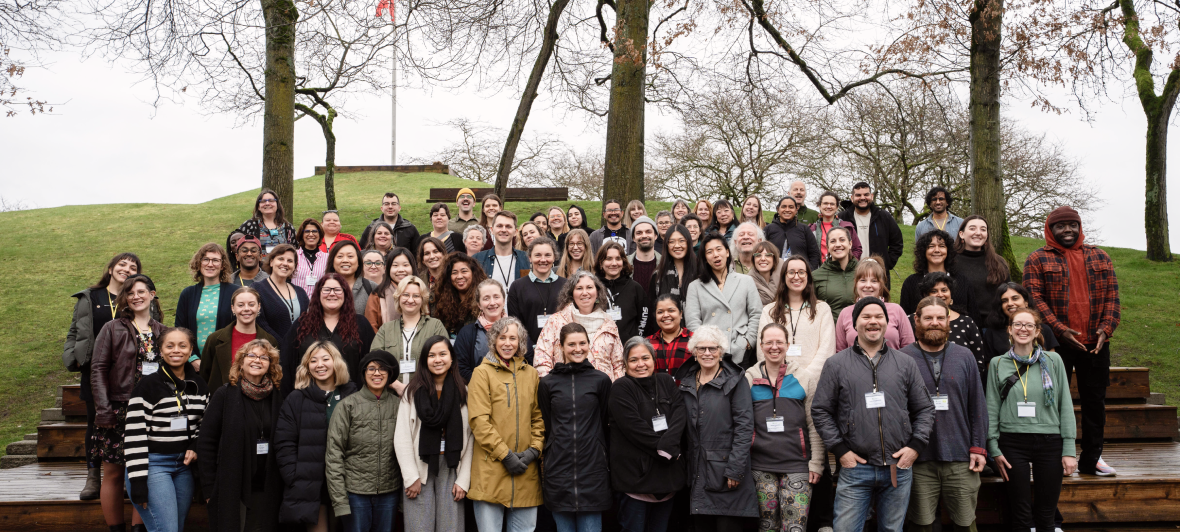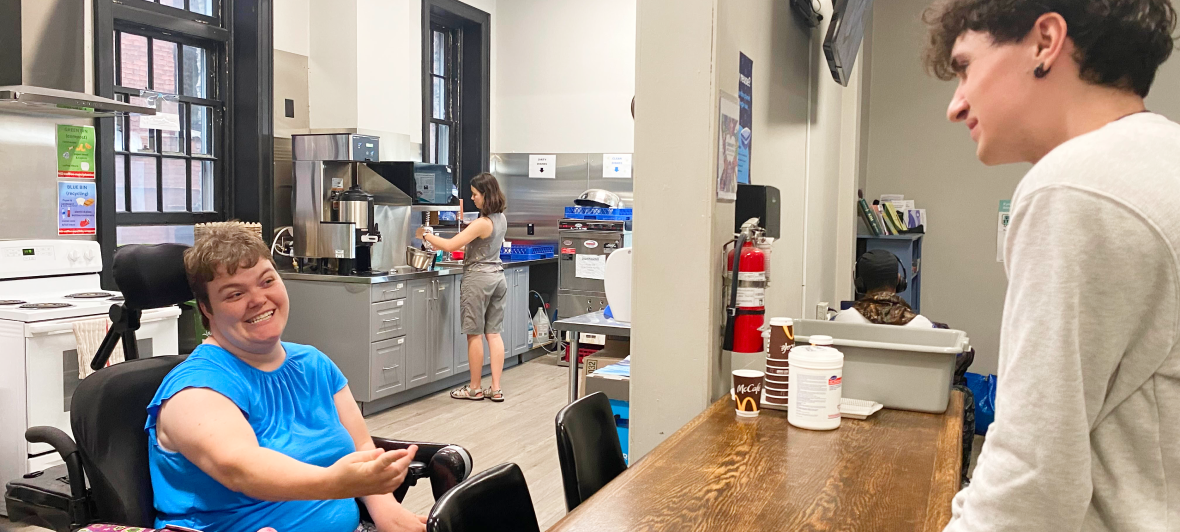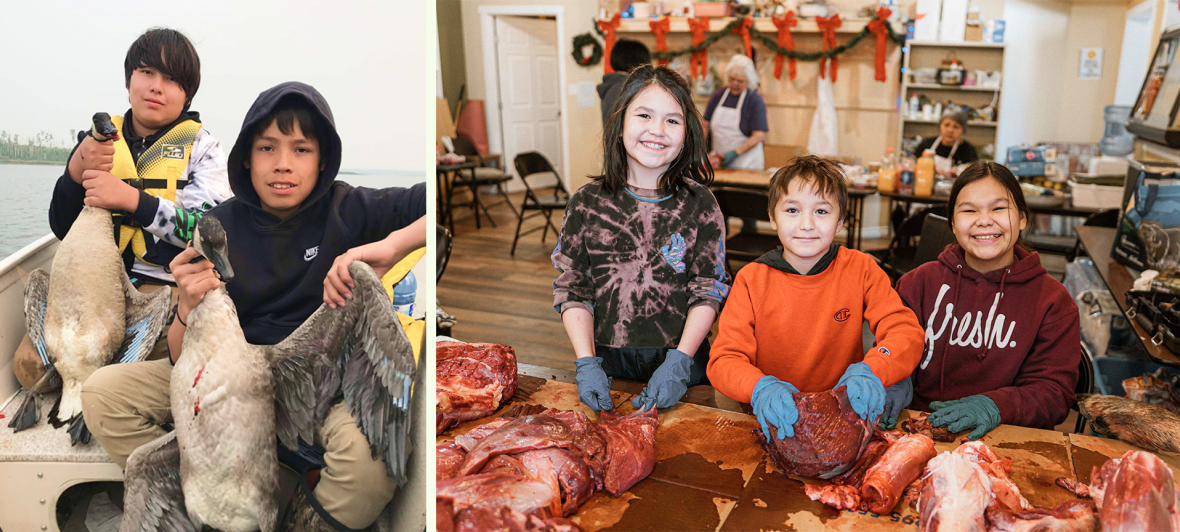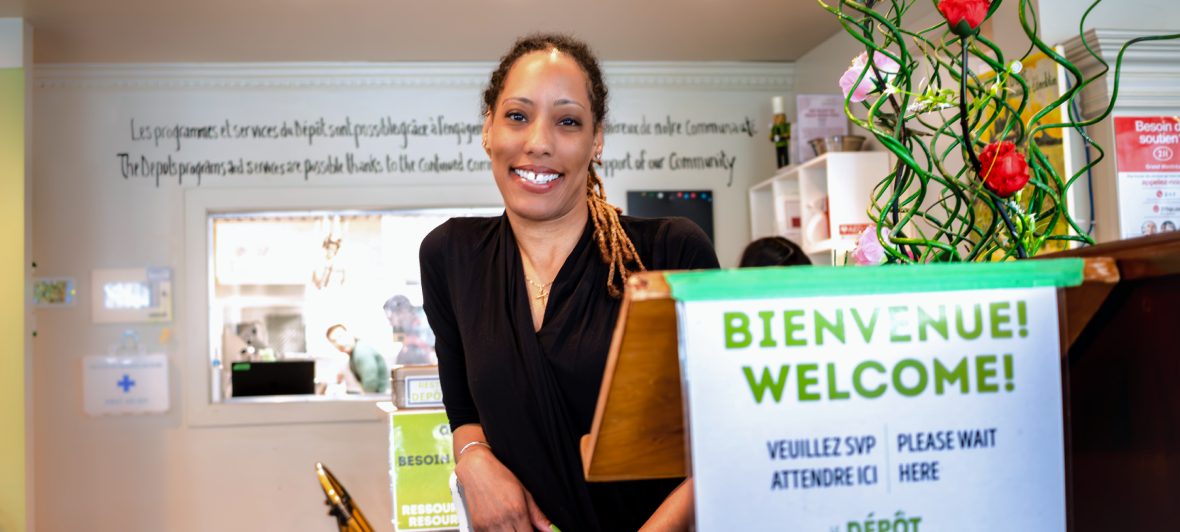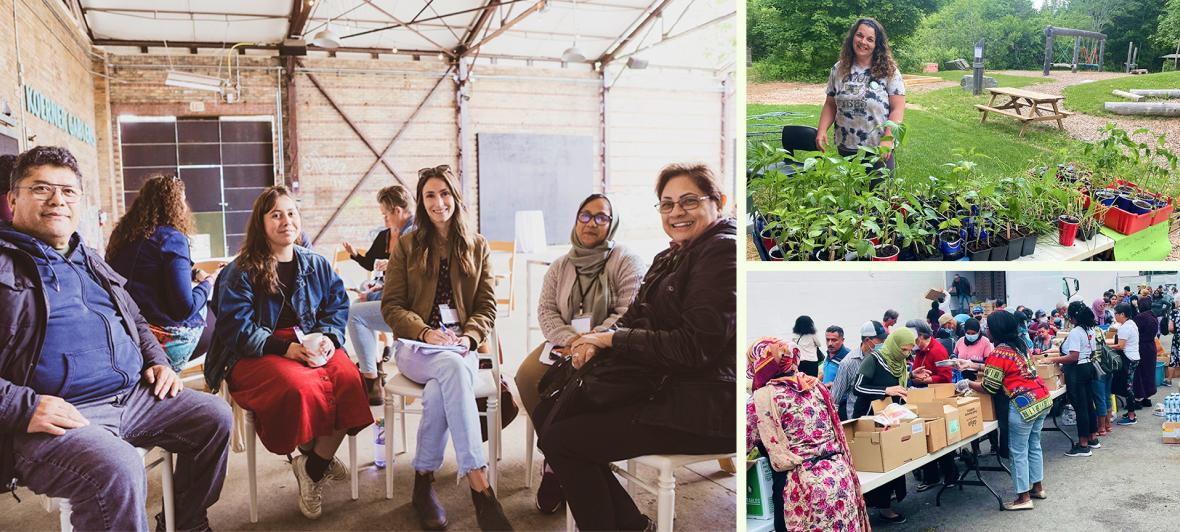

Left to right: Food Summit (photo by Gilad Cohen, 2022); Portapique Market (photo courtesy of Portapique Market, 2024); KAF’s food bank (photo by KAF, 2022).
The network that became a community
Back in 2014, Community Food Centres Canada put the call out: We’re starting a network of community food organizations—will you join?
In that first year, 37 organizations joined. And ten years on, this network of partners—the Good Food Organizations network—has grown more than tenfold. It’s become a welcoming community of practice where members learn and share knowledge.
Take Dr. Godwin Ude, Executive Director of Kingdom Acts Foundation (KAF) in Surrey, BC. In 2022, Godwin completed one of the courses that Community Food Centres Canada offers to the network: the Food Bank Transformation course. Initially, as he wondered how to meet community demand for KAF’s food bank, he believed there wasn’t enough food to feed everyone in the community. “But in the course, I was told: ‘No, think outside of the box. Think of abundance.’ That really struck me.”
In response, KAF increased its networks for sourcing food. They also focused on securing larger quantities of food. And to help scale up, they received funding to buy a refrigerated truck.
“We moved from serving a couple of hundred people a month to almost 14,000 people a month,” Godwin says.
In the same year that Godwin did the Food Bank Transformation course, another transformation started in Portapique, NS.
Two years had passed since a lone shooter carried out Canada’s deadliest mass shooting. In the aftermath, the community had to navigate grief and trauma, without adequate mental health supports.
Enter the organization Maggie’s Place. Maggie’s Place is another member of our partner network and they help families in the region. They wanted to step up their support: “The Portapique community is very isolated, very rural, and had no community support,” explains Program Coordinator Ashley Swan.
After securing a grant through one of the funding programs we offer to partners, Ashley established the Portapique Market. In addition to being a low-cost farmers’ market, Ashley notes it has “essentially become a community centre” for the local area. The market hosts other organizations, like mental health services, to support community members. And because some parts of the area lack Internet access, the market runs a cybercafé.
Being part of a nurturing community. It’s something that community food organizations value too. Ten years on, the network we started remains a supportive community for our sector.
Nick Saul, CEO of Community Food Centres Canada, sums it up well: “Our partners are doing something about the fact that many of our neighbours go home to empty fridges. That fact is unconscionable. But it feels good to be with a community of people who understand that and are working together for the right to food for all.”
